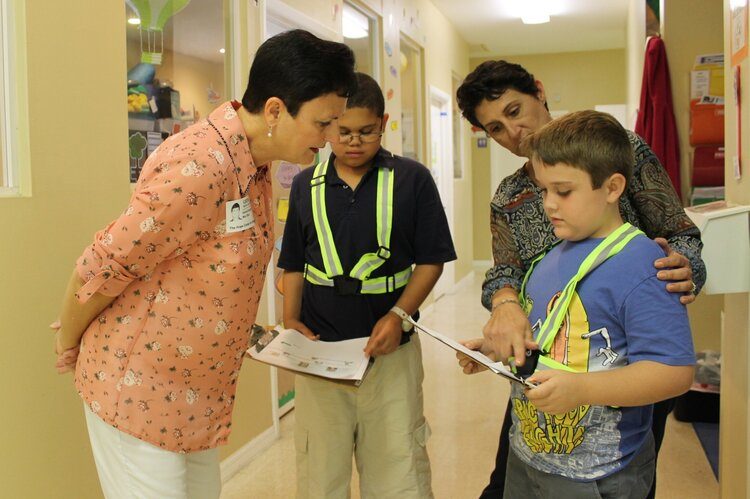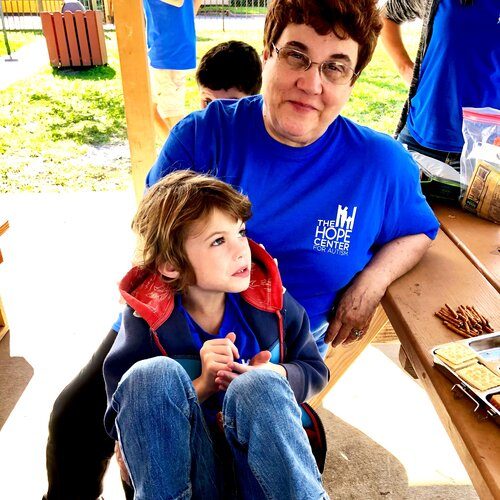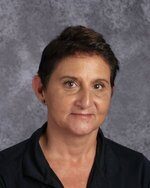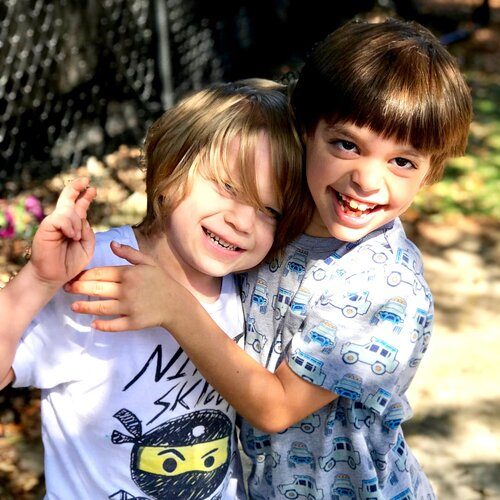As CEO Joanne Sweazey explains, “The Hope Center is a place to find support, friendships and a stepping-stone to the future.” Winn-Dixie has supported the Hope Center through the Community Bag Program.
Tell us about The Hope Center for Autism.
The Hope Center opened its doors in 2002 when a group of parents recognized that their children needed a more intensive educational approach, to learn the skills required to be successful in less restrictive settings. Throughout my career as a teacher, behavior specialist and program specialist, I have had the pleasure of continuing to work with these families and watching the growth of the Hope Center.
Our mission is to open doors to limitless futures for people with autism. Through the implementation of evidence-based interventions and continued progress monitoring, our students have progressed with many acquiring the skills needed to transition to a less restrictive school environment. But children are not the only ones affected by autism. Hope recognized that the needs of this population continue throughout the life span and added teen and young adult programming in addition to our public charter school for students in prekindergarten – 8th grade.
Autism has seen exponential growth over the years and Hope has mirrored that growth, going from as few as four students when the school opened to 92 students for the 2022-2023 school year. In addition, we have another 10 students in collaborative vocational SAILS program for young adults and an additional 80 in the Next Step social group for teens and young adults with autism.
Young adults with autism continue to need support to be independent and contributing members of our community. Rather than leading a life alone without employment, we initiated the Next Step program that provides support for this group. Next Step meets Wednesdays from 3:30-6:00 pm. Members play air hockey, pool, video games, eat pizza and benefit from social skills groups and individualized mental health counseling designed to meet the specific needs of individuals with autism.
Young adults with autism continue to need support to be independent and contributing members of our community.
Many Next Step members have found success in their academic or vocational lives but continue to struggle with socialization resulting in increased anxiety and depression. Members are taught skills that can be used to support each other in their pursuit of a happy life. Autism is a social-language disorder. Despite the high levels of academic or vocational success that some of our Next Step members have experienced, they are still significantly challenged by their social language impairment. Providing Next Step for these members results in more fulfilled lives.
Our educators are highly trained and participate in ongoing professional development opportunities. Opening the door to a limitless future requires education across all people and settings including other local agencies and schools who want to learn more about supporting this population. Our staff offer professional development opportunities for families, staff, and community members. We are building the capacity of our community to meet the continued needs of people with autism.
What sets you apart from other nonprofit organizations in your community?
The Hope Center is based on the principles of applied behavior analysis. Tiers of service organize the delivery, intensity and type of academic and behavior interventions that are used in our school. Teachers and therapists review student data weekly to determine if current programs and interventions are beneficial or if changes are needed to ensure student progress.
For example, every student in a group may read the same textbook and then we may have four or five student who don’t do so well with that textbook. They might sit there and listen to the text but not actually comprehend. They need some other support in a small group. And then out of those four or five students in that small group, you might have one or two who need some intensive support to make any progress. Regular analysis of student data guides programming to ensure that each child receives the support that best suits their learning style.

Tell us a story that illustrates the good work you are doing.
Students with autism who demonstrate the ability to verbally express themselves, often at an advanced level for their age, are typically our most misunderstood group. They may be able to decode a word or phrase, but actually understanding what it means is very difficult. The comprehension of social language also results in many misunderstandings and significant frustration on the part of the student and their communication partner.
Navigating the world requires adaptation. Adaptation requires an understanding of the current setting and how a person needs to change to better fit in to that setting. This is quite a daunting task for an individual with limited skills required to observe, problem solve and implement change. However, considering the abilities that this population demonstrates, it is in society’s best interests that we help to guide and support these young people, so they are able to use their gifts to improve our world.
Considering the abilities that this population demonstrates, it is in society’s best interests that we help to guide and support these young people, so they are able to use their gifts to improve our world.
What do you want people to know about The Hope Center for Autism?
The Hope Center is a place to find support, friendships, and a stepping-stone to the future. We are not real world. All of our students enrolled in the school have autism. Without the skills needed to observe and respond to an environment, a student may be significantly challenged in a more traditional setting. We teach our students the skills they need to benefit from less restrictive settings. Students learn how to replace ineffective behavior with interventions that still meet the needs of the individual, but in a socially acceptable way. I said it earlier: our mission is to prepare our students for the outside world and to be independent and successful in whatever way that is for each child, because everybody’s success is different.
But I think that’s the most important thing, because a lot of times people want to come to schools like this or go to organizations and they see that as the last step. And we should just be the first step they go to, but this is not real life. This school is not anywhere near real life. This is a place to learn a few things and then go out to the real world because they’re not going to get jobs in isolated environments.
They’re not going to have jobs where there aren’t typical people that they need to learn how to deal with. And people are nasty sometimes, and you have to learn how to deal with them. Providing our youth with the tools needed to respond to both positive and negative situations will enable them to be successful in the world and live an independent and happy life.

How are you using the funds you’ve received from Winn-Dixie Community Bag program?
We use those funds to buy reinforcers and motivating items that will help our students to keep moving forward. I just had one knocking on my door because he wants his Roblox card. It can be Roblox for one, a candy bar for another and water play for another one. And those things are essential to their progress, but they’re also expensive.
Is there anything you’d like to add?
One of the most important things that I target is the importance of employment for people with autism. We have hired several young adults with autism here, too, and it’s not always easy. Our staff are learning how best to support their coworkers so that everyone is successful on the job and also learns how to grow a social network when you have time off. Often employment is the difference between a life of success and happiness and one in which the individual remains at home forever. If you would like to support a young adult in their transition to independence please reach out, let us help before you terminate the employment of that individual. Sometimes, success can be found with limited intervention – we just have to find a little something that helps the individual to better understand and respond to the real world.

Joanne Sweazey is the CEO of The Hope Center for Autism and a teacher, behavioral specialist and program specialist.

